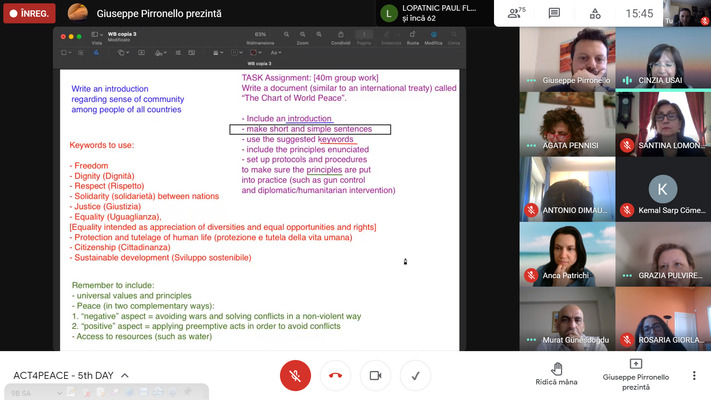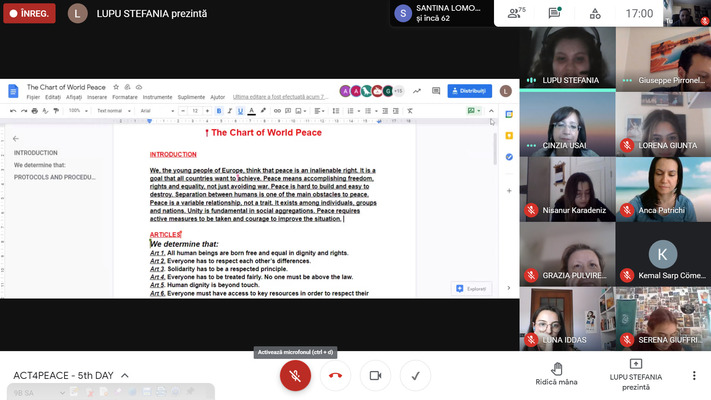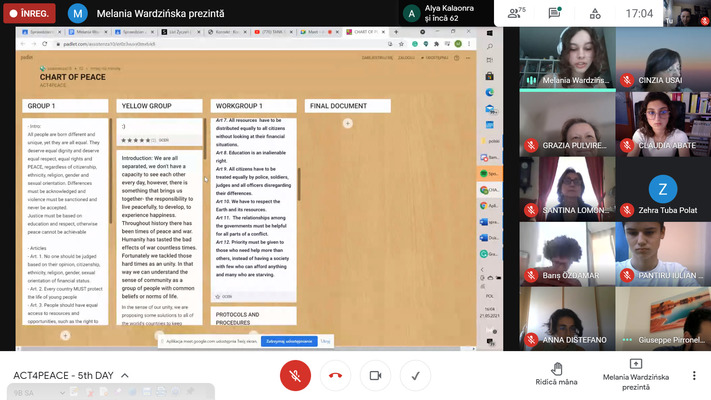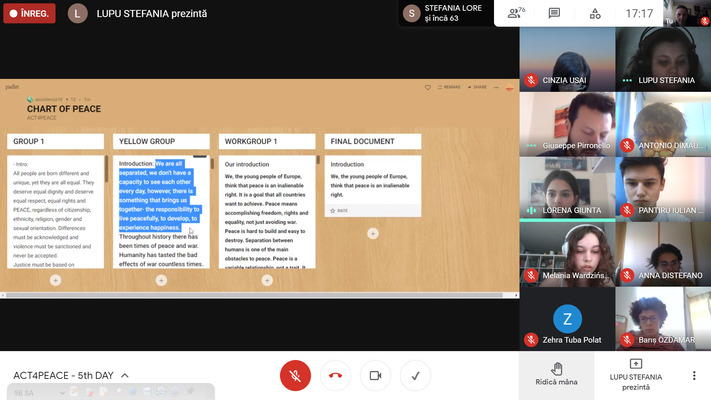THE ITALIAN ONLINE MOBILITY: CATANIA 17th – 21st MAY 2021
The Italian mobility (17-21 May 2021) took place online, via GMeet, which led to an increase of the participating students to one hundred but also had some limitations, such as the impossibility to deepen the interaction among students and to establish closer relationships and, moreover, the lack of the opportunity to explore the hosts’ country and get the flavour of it. However, the requirements have been met as far as the contents and the objectives are concerned.
Day 1:
After the welcoming of the school headmistress, the activity “Going around Catania” took place. The Italian students presented and commented on a video about Catania to make up for the impossibility to visit the most beautiful and interesting venues and give the gist of the town. The informal presentation raised interest and curiosity in the viewers who were eager to know more about the volcano Etna landscape, the Sicilian traditions and myths and the typical food. After that, the students, tutored by teachers, were divided into five mixed groups and led to their virtual classrooms to carry on the “Get to know each other” activity based on students’ personal stories that encouraged authentic communication.
At the end of each day's activity, everyone gathered in plenary sessions to give feedback.
Day 2:
Different activities for students and teachers were organised. Students were trained by the Italian school choir director through music activities meant to experience the sounds of peace. Meanwhile, the teachers had a workshop, led by psychologist Dr. Mingarelli, entitled “The conflict between War and Peace”, in which they had the opportunity to confront each other on how to cope with conflictual situations.
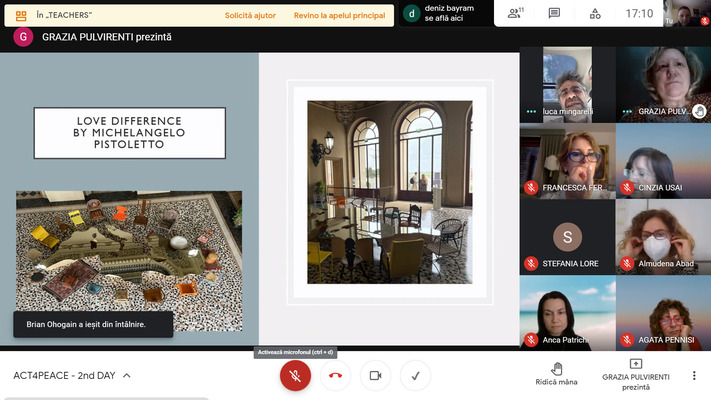
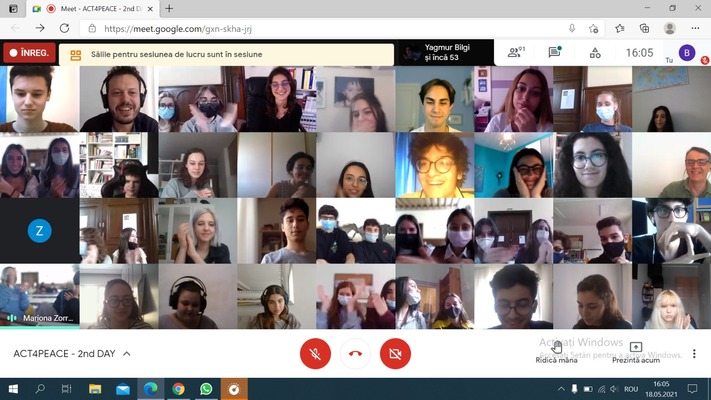
Day 3:
Day 3 was entirely devoted to “Creative Thinking”. It was a problem-solving group activity with a final dramatization: students were led by a drama teacher through a series of tasks based on the topic of peace. By simulating a conflict, they suggested creative solutions to deal with it.
Day 4: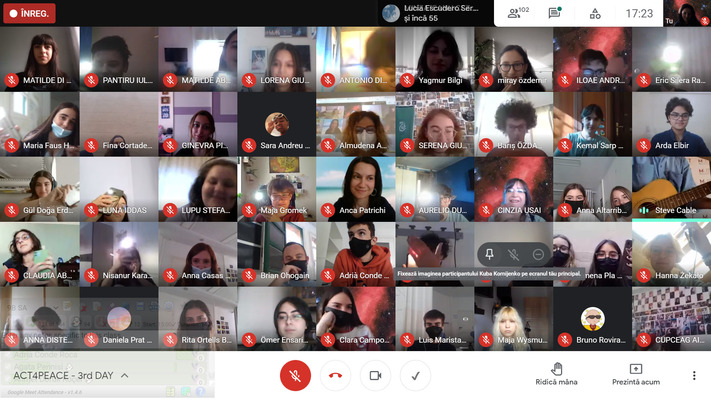
The students, split into mixed nationality groups, discussed proposals for implementing peace education in schools. One representative for each group reported the results of the round table in the plenary session. The following session was devoted to the valuable presentation of ‘Our Moment of Peace’ that each country had prepared.
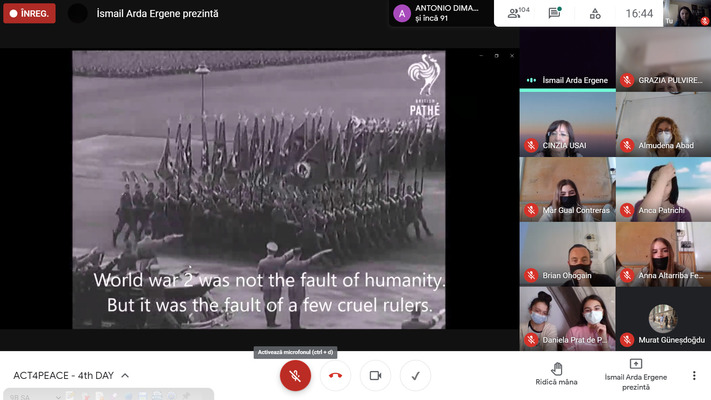
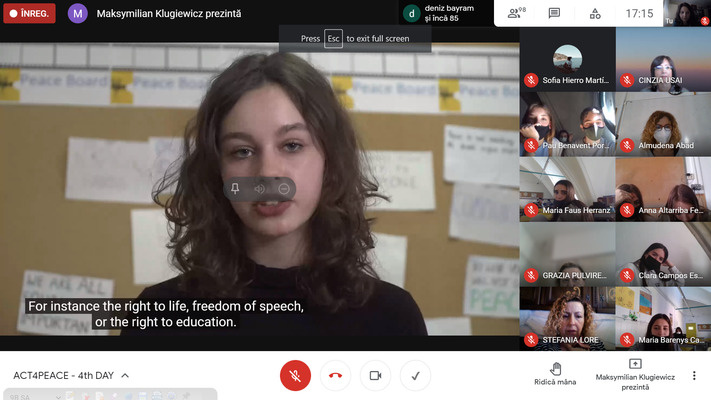
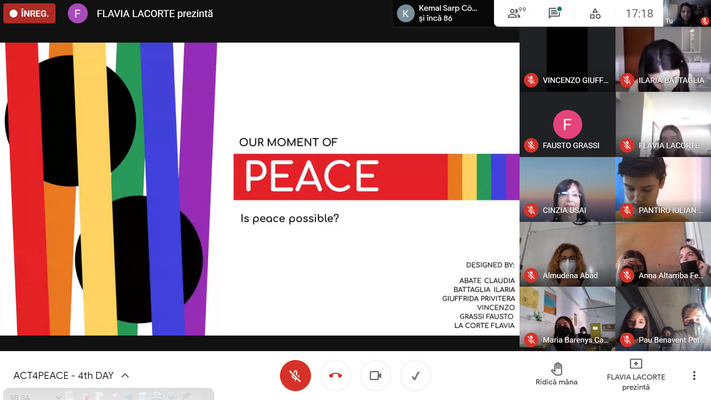
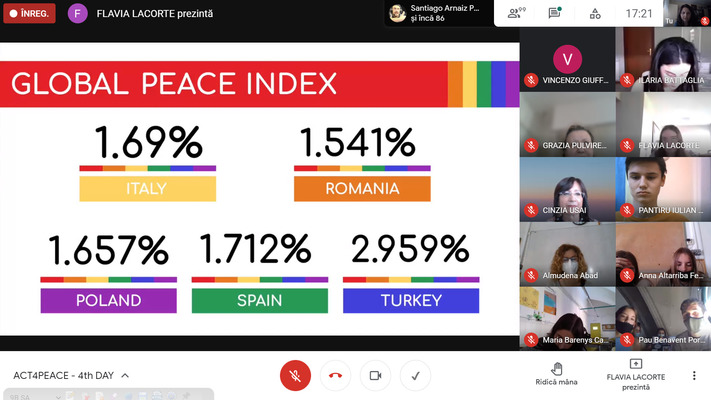
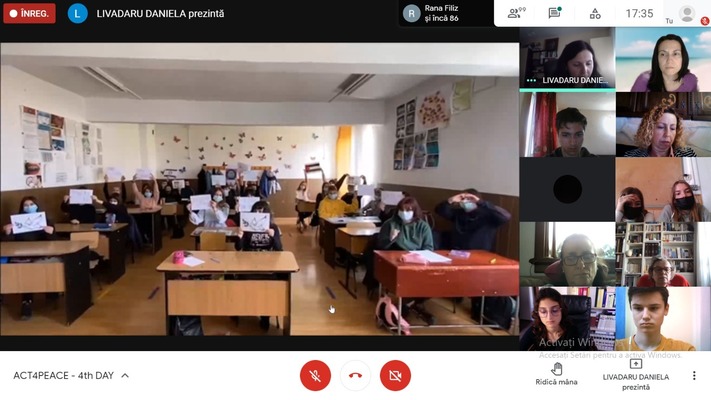
Day 5:
This day occurred the most challenging activity - the production of the ‘The Charter of Peace’. Students were grouped and jotted down the most relevant points to be later discussed and introduced in the Chart. Then, in the plenary session, the representatives negotiated the articles for the final draft of the Charter. The conclusive moments were the final feedback and greetings that each student and teacher gave to the others: it conveyed to the organizers the feeling that, although physically distant, the mobility had had a deep impact on everyone and that its set goals had been achieved.
